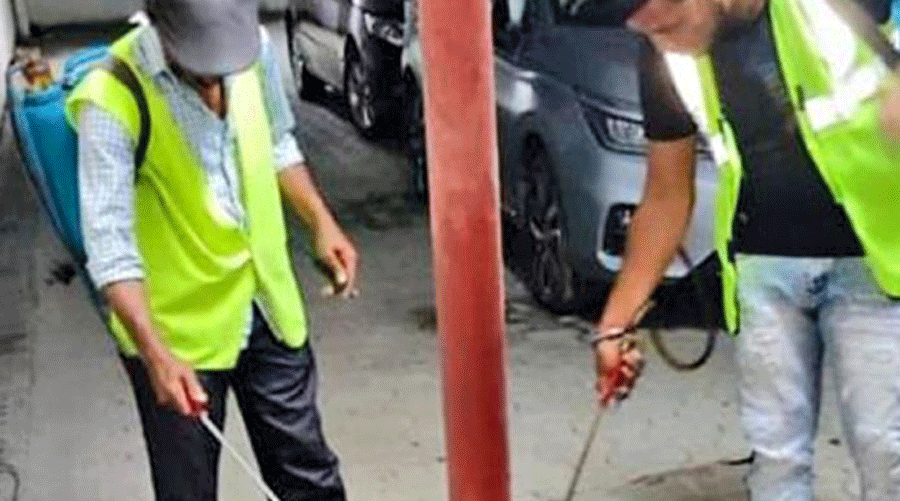The current pattern of rain, short and intense spells but not daylong downpours, is set to create ideal breeding grounds for mosquitoes, experts warn, but many residents across Kolkata said they had not seen any vector-control drive by the civic body yet.
Kolkata Municipal Corporation (KMC) officials said the city had so far this year reported around 250 cases of dengue, a disease caused by a virus that is spread by Aedes aegypti mosquitoes.
Entomologists say downpours destroy mosquito larvae and eggs by washing them away. But short spells of rain, followed by high temperature and humidity, provide ideal conditions for Aedes aegypti mosquitoes to breed.
It is important to destroy potential breeding grounds of mosquitoes by draining out stagnant water, said an entomologist
The KMC is supposed to visit all neighbourhoods at least once in one or two weeks to ensure no mosquito breeding ground remains.
Civic officials said vector-control workers should also visit households and look out for potential mosquito breeding sites. They should also enquire if anyone in the family is running a temperature and remind the residents that they should regularly clean their terraces and other open spaces where water can accumulate.
But many residents across the city told The Telegraph that the KMC was yet to launch vector-control drives in their neighbourhoods this monsoon. In the places where such efforts have started, residents said, the gap between two visits by civic teams was too long.
A resident of Kasba in south Kolkata said no one from the KMC ever visited their apartment in the last two months.
“The son of a woman who works as a help in a flat in our building had tested positive for dengue. She said no one from the civic body had visited her place even after her son tested positive,” said the man.
A resident of Ekdalia Place in south Kolkata’s Ballygunge said the last time someone from the KMC visited their home was more than a month ago.
A resident of Cossipore’s Prannath Chowdhury Lane in north Kolkata said a vector-control team from the KMC had last visited their neighbourhood about one-and-a-half months back.
A resident of Joy Mitra Street in Sovabazar, also in north Kolkata, recounted a better experience.
“A team from the KMC visited our home about 10 days back. They went to the terrace to check for any pool of water where mosquitoes can breed,” he said.
Amlan Das, an associate professor of zoology at Calcutta University, said the egg of an Aedes aegypti mosquito can develop into a larva in a week. And the larva e develops into an adult mosquito in another seven days.
“That is why everyone should clean open containers and check out for mosquito breeding grounds in their houses and surrounding areas at least once every two weeks,” said Das, who specialises in entomology.
A KMC official said each ward has about 25 people engaged in vector-control drives.
“Our vector-control teams are supposed to revisit a place within seven to 14 days of the previous visit. Every day five or six teams visit households in every ward. They spray larvicides to destroy mosquitoes and also tell residents what they should do to destroy mosquito breeding grounds,” said the official.

